Unfortunately, some people hear the word history and automatically think boring.
As someone that finds history very interesting and fun, I hate seeing history get a boring wrap. It doesn’t help when schools insist on using outdated history textbooks written in a dry and biased way. As someone who decided to continue into higher education to gain a history degree, I have come into contact with many history books that are not dry and more interesting and scandalous than romance novels.
Even after finishing college, I still look out for history books with topics from around the world.
Here are some of the books that I believe are not your average history textbook that caused many to give up on history.
- Destiny of The Republic by Candice Millard

This book mainly follows two men in the late 19th century and a little bit before (for context), James A. Garfield, the 20th president of the United States, and his killer Charles J. Guiteau. This book leads up to the assassination of Garfield. You’ll also read about Alexander Graham Bel showing off his prototype for the telephone and early x-ray machine, the 16th president (Abraham Lincoln)’s son working in D.C. and the U.S. just turning 100. Millard managed to make this book read as easily as a young adult fiction book. All you want to do is find out what happens next as you see a larger than life and confident president be shot down by a delusional man who felt like he was being overlooked by his supposed friend who owed him favors.
- Romanovs; 1613-1918 by Simon Sebag Montefiore
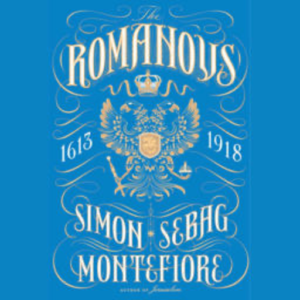

When people hear about the Romanov dynasty, they usually always think of the last family of the dynasty or the Anastasia mystery. This book starts at the beginning. Not many people know that the first Romanov Czar didn’t want to rule and had to be convinced to do so by his mother’s nun. The Romanovs cover over 300 years, and this book depicts the great and the terrible. With all the backstabbing, forced marriages, non-secret affairs, and death, you would think you were reading a murder mystery novel. Before the fall of this dynasty, there were the high points and the hiccups, and this book is a great read of it all.
- We Crossed a Bridge and It Trembled; Voices From Syria by Wendy Pearlman
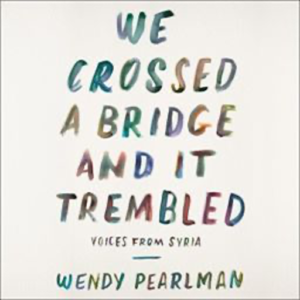

This book is more of a modern history book containing a collection of testimonies from ordinary people chronicling the Syrian conflict. The winners write history; in this book, it is written by the people that are living through it, not as soldiers or political leaders but the doctors, mothers, fathers, and children. We see the intimate realities that these people have to go through. This book is an excellent read for anyone interested in what has gone on in Syria. It’s not for one side or the other, but groups of people that tend to go forgotten when all we see are sides.
- The Worst Hard Time by Timothy Egan
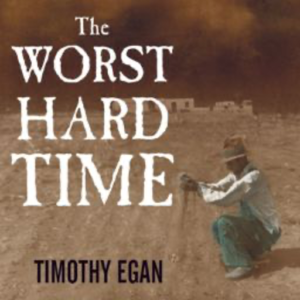

This book tells of a time during one of the hardest and darkest moments in the United States, the American Dust Bowl. Many focus on the Great Depression that started in 1929 with the stock market crash, but history rarely concentrates on the ones that felt the hit the hardest. Farmers not only were fighting a failing economy, they were fighting mother nature as the fields that they had been tilling for generations died. And as they were trying to resurrect the land, nothing was holding the topsoil down (usually crops) from blowing away, creating giant dust storms that would blow to D.C. The contemporary world forgets how hard it can be and how hard it was to the point that the hardships are down-played or even wrongly compared to unrelated situations in the present. This book is useful to remind the world what hardship was and, in some cases, what it is like for the working and lower classes outside of the major cities.
- The Nazi Officer’s Wife by Edith Hahn Beer with Susan Dworkin
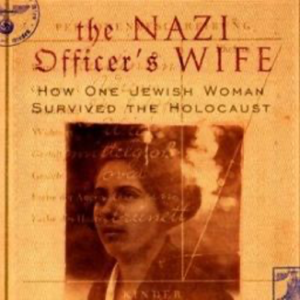

This book is of Edith Hahn’s story during World War Two. Edith saved all the information she could during her uncertain life as a Jew hiding from the Gestapo, from falsified papers to photographs she managed to take inside labor camps. In the book, you see Edith become separated from her family, lose her boyfriend, gain the affection of a Nazi party leader and start a family of her own, all the while hiding her true identity from everyone around her. You read how she was constantly afraid of someone seeing right through her or questioning her intentions. In her story, you become intimate with her struggle before, during, and after the war. Not many people read more than what is taught to them in school about WWII, barely understanding the atrocities that real people went through. This book will show the great evils and great triumphs that humans are capable of even when their world is on fire.
- The Epic of Gilgamesh
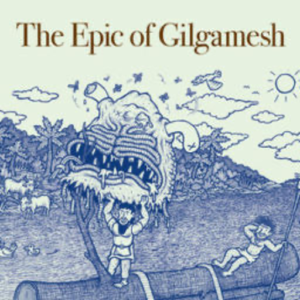

The Epic of Gilgamesh tells of a historical king of the Mesopotamian city of Uruk around 2750 BCE. The Epic tells how this king befriends a civilized savage and goes on adventures together. Their story is of friendship, death, grief, and the search for happiness after. And although this sounds like fiction, this story is a part of what is left of the ancient civilization.Through this tale, we can cross-reference to other stories that have similar events, like a great flood. We can also take into account the dynamics that kings and civilians played with friends and lovers. For some ancient civilizations, a great deal of history comes from the stories that were recorded and later found and translated. Don’t let this book’s classification as an Epic fool you; the Epic of Gilgamesh is short compared to the other books on this list. The way that Gilgamesh is written also allows for a very fast read. This book is a must if you are fond of mythology and ancient civilizations.
- Mountains beyond Mountains by Tracy Kidder


With this contemporary history book, Tracy Kidder depicts the life of Paul Farmer and his calling to cure infectious diseases, bringing modern medicine and tools to areas of the world that need them. This book illustrates Farmer’s travels from Haiti to Peru, Cuba, and Russia. Mountains Beyond Mountains spans many years tracking Farmer’s work in medical school as a student and as a professor in said school, with the World Health Organization, world politics, social systems, significant pharmaceuticals, his non-profit “Partners In Health,” and (most important to him) his clinics. This book also dives into the countries’ backgrounds and why they lack modern medicine and the tools that people in developed countries expect to have when seeking medical care. The book shows that there needs to be cooperation between the people seeking treatment, the government, and the medicine and tech organizations for people to get truly healthy. Mountains beyond Mountains ultimately serves as an excellent example of how inequality in wealth and nationality plays a role in distributing medicine and funds from other countries.
- The Odyssey (and the Iliad) by Homer


Some might notice that these Epic Poems credited to Homer are not considered to be history books. It is regarded as a legend or story passed down verbally, which Homer claimed as his creation. So there is nothing to prove that any of the events occurred. What we can take from these poems are the little details that happen to side characters. We can begin to see the customs that ancient Greeks valued. A major custom being xenia, the rule of hospitality. No matter if you are a stranger, king, peasant, or god, if someone claims xenia, it has to be honored, unless you want to be considered a savage or killed by said god you did not welcome into your home. Books like these can sometimes serve as the best way for modern minds to explore the past and understand life.
- Family by Pa Chin
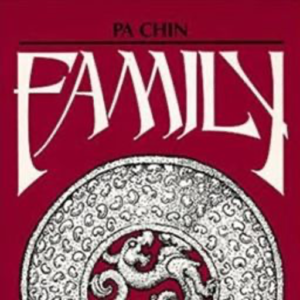

“Family” paints a picture of the turmoil in China in the first half of the 20th century. Though a book of fiction, the story is drawn heavily from the author’s own life during that time period. This book depicts the conflict between old China and new China; The tension manifests itself amongst the family, particularly the three brothers, that the story revolves around. There is a highlight on the conflict between generations, ill-fated love, the students’ political movements, and women’s liberation. The modern reader can still relate to these characters’ struggles, arguments, and life experiences based on real people’s lives. This book serves as an excellent story for those interested in Chinese history, especially modern history, to learn more about the early instability of the century and how it affected society.
- Collapse by Jared Diamond
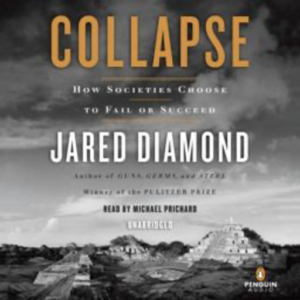

This book is made up of multiple chapters about different civilizations that ended up collapsing mysteriously or not so mysteriously. Diamond dives into the things left behind by these civilizations, explaining what they were used for and what they tell about the people who lived in the cities’ ruins and islands. A favorite chapter of mine is about Easter Island, its missing forest, and its giant stone moai. Looking into this collapsed civilization could help modern societies from falling into the same fate. This is a great book to learn more about a range of different cultures without having to read multiple books, all while still feeling awe in the presence of history.
Like the article? Consider pinning it!


















